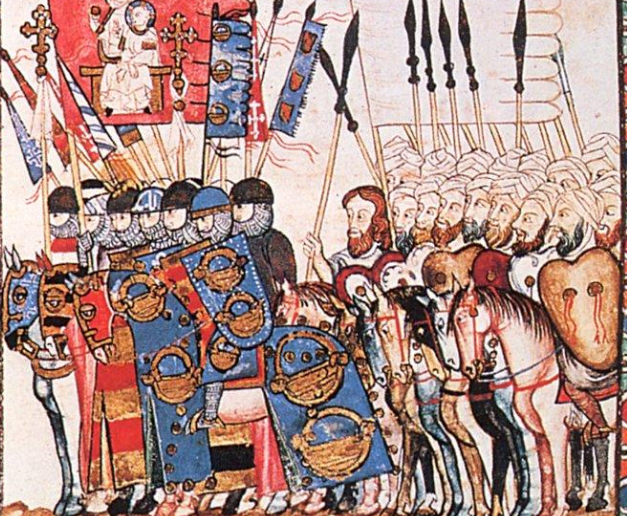Adrian of Canterbury (died 9 January 710) was a famous scholar and the abbot of St Augustine’s Abbey in Canterbury in the English county of Kent.
He was born and raised in North Africa, a Berber, during the supposed “Arab invasion”. Invasion of his country! So an intellectual witness of his time. He, like all other North African intellectuals, the most numerous at this time in the Mediterranean, and other Spanish, Italian or French intellectuals, did not write a single word about this event that would have overthrown the world as Nazism or communism has overthrown the 20th century. For more than two centuries no one had written or heard of a powerful army from the Orient who invaded their land in the name of an unknown god.
The historian Louis Brehier wrote: “For ten centuries, from Procopius to Phrantsés, thanks to the series of chronicles, political histories, biographies, memoirs, many preserved and most of the time excellent manuscripts we know everything about the history of Byzantium … there is only a gap between the end of the 7th century and the beginning of the 9th century, a period of Arab invasions and iconoclastic struggles “. On the same subject, the historian Saavedra also pointed out this gap concerning the supposed conquest of Spain: “From the reign of Vamba, who died in 672, until the advent of the reign of Alfonso lll Leon, in 882, more than two centuries, we do not have anything, neither from southern Arabs nor northern latins nor mozarabes.The problem arises for the entire Mediterranean basin.
Despite these observations also made by Marcais and Andre Julien, both historian specialists of North Africa, these official historians have preferred to write about the amazing fable of the Arab presence in the Mediterranean basin rather than leaving the history book with blank pages.





Leave a Comment